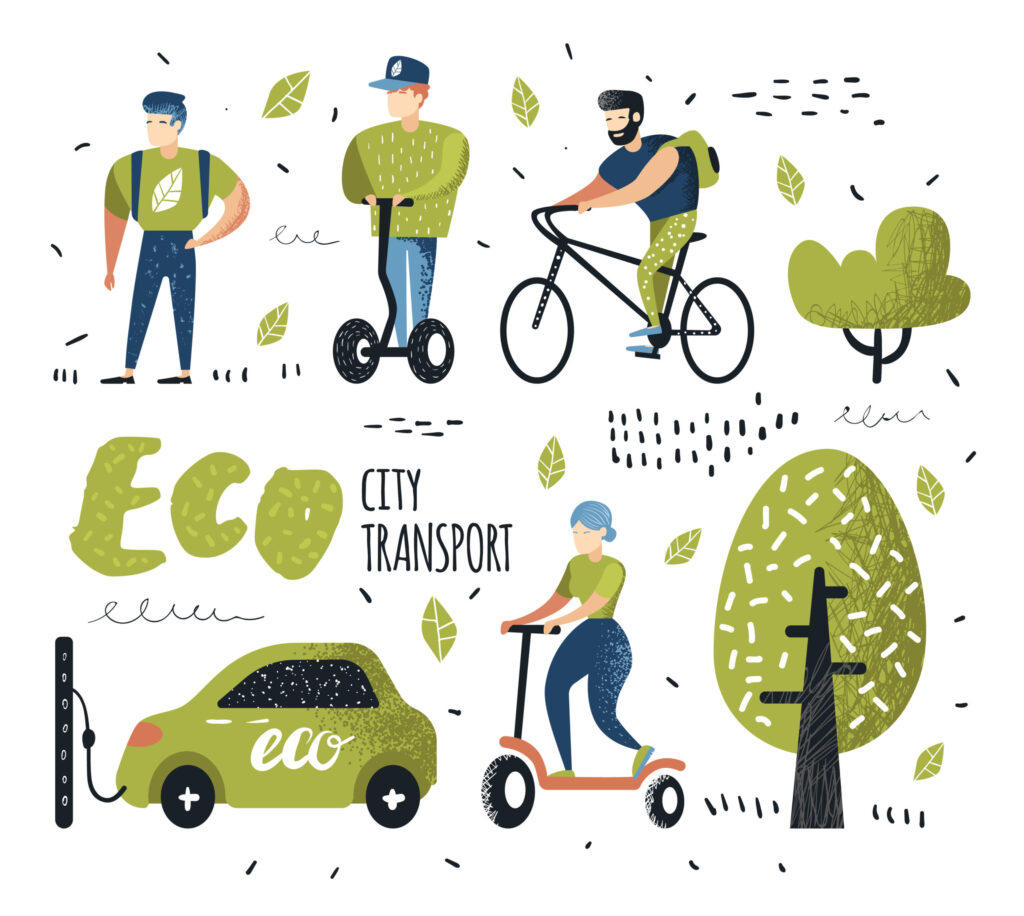Environment
Climate change – Transport
Emissions from transport make up approximately 65% of the District’s greenhouse gas emissions. So, by reducing the number of journeys we take and switching to more sustainable transport options such as walking, cycling, public transport and electric vehicles we can make a big difference to our local environment. If every household in Epping Forest avoided one single-person 5km journey a week in an average diesel car we would save 2,311 tonnes of carbon every year[1].
These actions will not only reduce your carbon footprint, but they help to clean up local air quality protecting our health and the health of nature in the area. There are also benefits such as reduced traffic and reduced costs of travel. Cycling and walking has also been found to improve mental health and physical health as well as being a fun way for the whole family to get around.
To reduce your emissions from transport:
- Swap car trips in favour of active travel. Did you know air quality inside your car is thought to be worse than on the street[2]? By walking or cycling instead of driving to the local school, shops or gym you can improve your health and reduce emissions. For inspiration on active travel, visit sites such as Love to Ride Essex and Essex County Council’s Carbon Cutting Essex app
- Check out the bus or tube for inter-town journeys. You can also buy cheaper advance rail tickets for UK holidays instead of driving
- Each fully occupied bus in our towns and cities can remove the equivalent of up to 75 cars from the road. It’s for this reason that choosing bus is already a positive choice for air quality – and even more so if that bus is retrofitted to meet emissions standards
- Use public transport for the longer journeys. We have eight Central line stations and a rail station in the District, TfL red buses in Loughton, Buckhurst Hill and Chigwell areas and inter-town bus routes managed by Essex County Council. The more these are used, the more services will be protected and improve
- Take care of your car. If you need to drive, avoiding unnecessary braking and acceleration, keeping tyres inflated and the engine well maintained will mean you waste less fuel saving money and also producing less emissions
- Consider fully electric models if you’re looking to buy or lease a new vehicle. Technology, grant funding and new financing/leasing models are pushing down the cost of vehicles and the average vehicle range is now around 200 miles making range anxiety a thing of the past, plus refuelling and servicing costs are cheaper. To find charging locations near you see zap map for more information. You may be eligible for help to install a charge point at home through the EV chargepoint grant
- Try car sharing. Journeys with colleagues or friends halve your emissions and fuel bill. See LiftShare for more information on car sharing in the Essex area and your employer may have their own scheme
- Turn off your engine when stationary. Unnecessary engine idling is an offence under section 42 of the Road Traffic Act 1988 and a large contributor to air pollution. Many engines now have an auto on/off function that can be used in stop start traffic to reduce stationary emissions. This will also help to reduce air pollution
- Fly less. Next time you’re planning a trip, consider going somewhere closer to home or travelling by train, ferry or car. If you do fly, consider offsetting your emissions
[1] Based on 51991 households in the 2011 census and information from Which form of transport has the smallest carbon footprint? – Our World in Data
[2] Higher air pollution health risk inside car, study finds – AirQualityNews
More information
- Grant schemes for electric vehicle charging infrastructure – GOV.UK
- Charging points and electric vehicles UK 2021 – Zap Map
- UK Power Networks – Cost, time and what’s involved?
- Electric vehicles: debunking the myths – Energy Saving Trust

